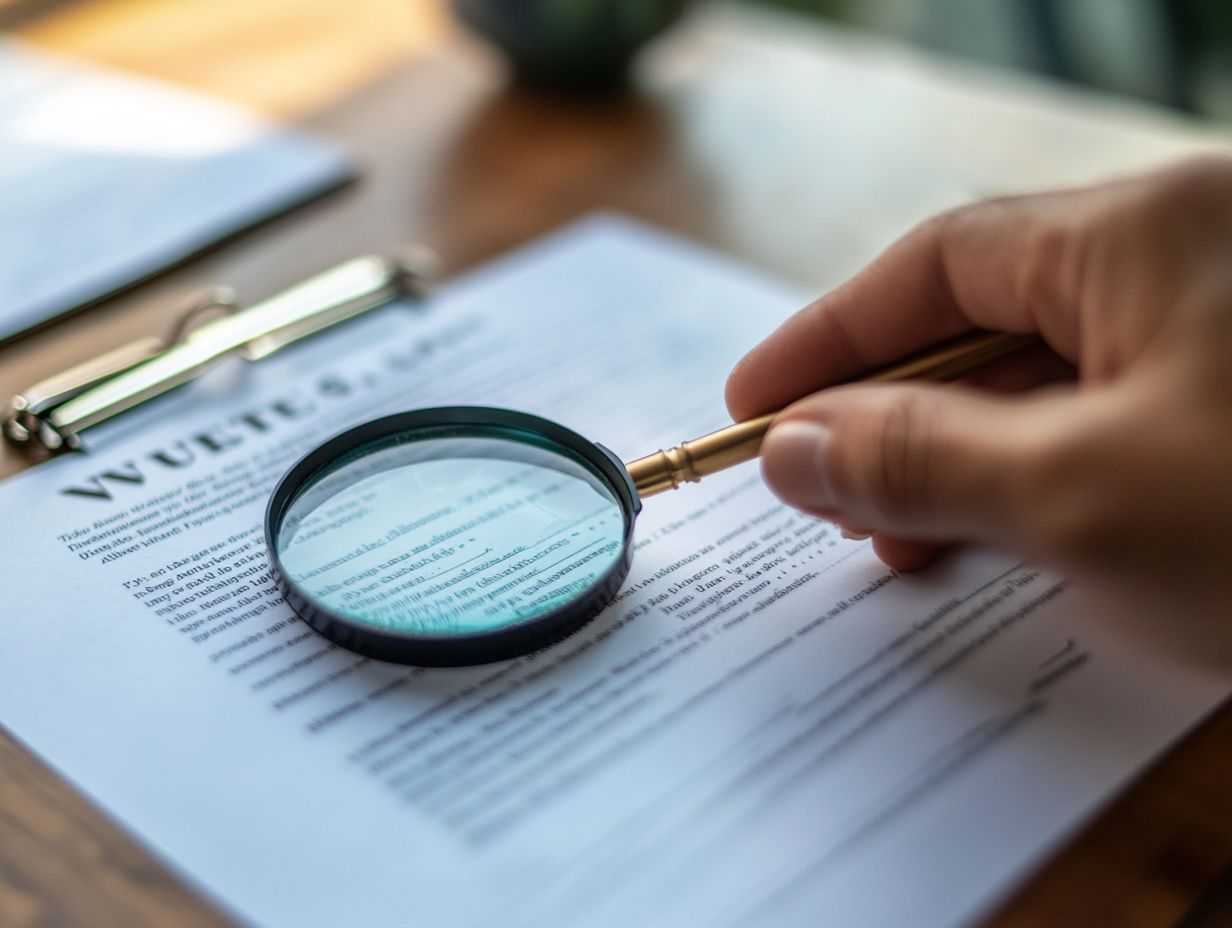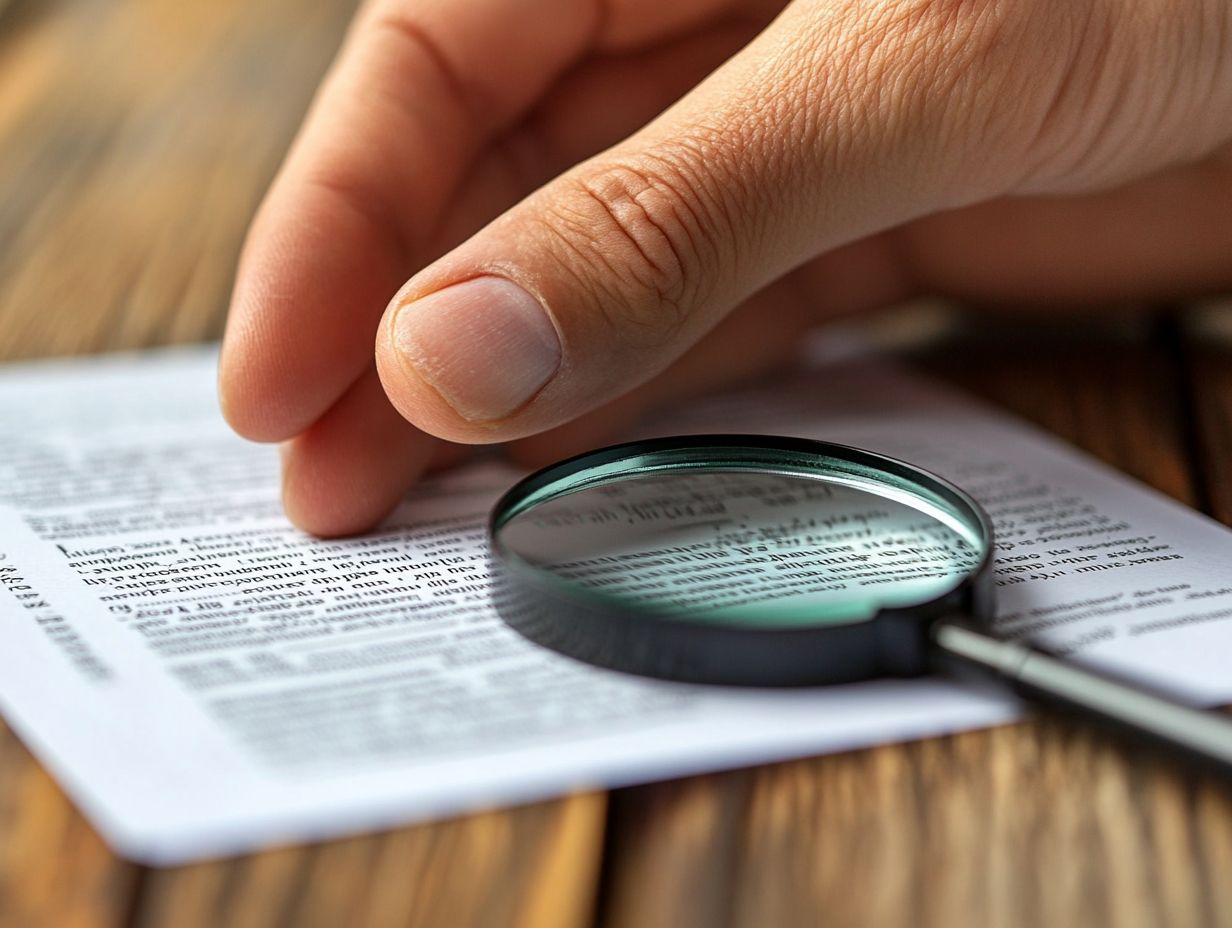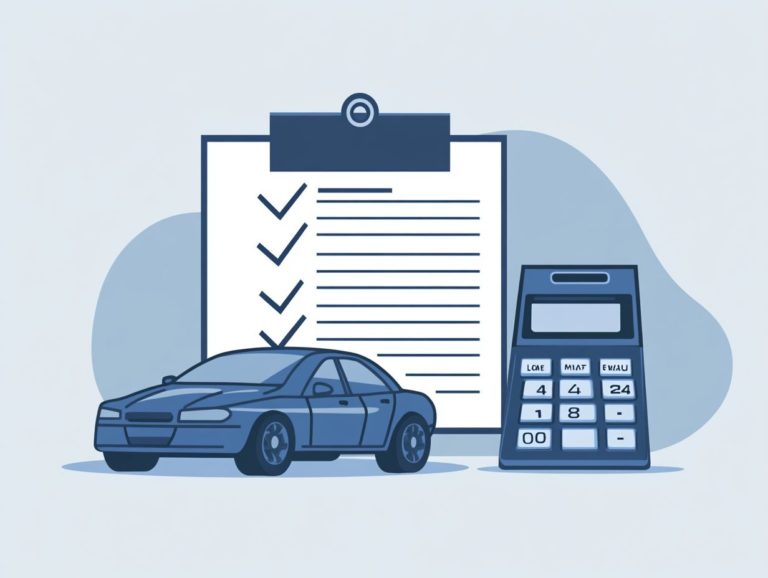The Importance of Reading the Fine Print
In a world brimming with contracts, warranties, and agreements, the fine print often holds the essential truths about what you’re really signing up for.
You might find yourself skimming past this critical information, only to encounter unexpected consequences down the line.
This article delves into the nature of fine print, its significance, and common examples you may come across. It also offers valuable tips for deciphering confusing terms and guidance on when it might be wise to seek professional assistance.
Don’t let the fine print surprise you start reading now to protect yourself!
Contents
- Key Takeaways:
- Understanding the Fine Print
- Why Reading the Fine Print is Crucial
- Common Examples of Fine Print
- Tips for Reading and Understanding the Fine Print
- When to Seek Professional Help
- Frequently Asked Questions
- Why You Can’t Afford to Skip the Fine Print!
- Why is it important to read the fine print before signing a document?
- How can reading the fine print protect me?
- What are some common things to look out for in the fine print?
- Does reading the fine print take a lot of time?
- Can I ask for help in understanding the fine print?
Key Takeaways:

- Always read the fine print before signing any contract or agreement. It can contain important details and clauses that may have consequences in the future.
- Failure to read the fine print can result in unexpected fees, penalties, or legal issues. It is important to fully understand all terms and conditions before making a commitment.
- If you are unsure about any part of the fine print, seek professional help and advice. A lawyer or expert can help clarify confusing terms and protect your interests.
Understanding the Fine Print
Grasping the intricacies of the fine print is vital as you navigate complex agreements such as credit card contracts, gym memberships, and loan agreements.
Overlooking even the smallest detail could expose you to unexpected costs and legal repercussions. The fine print conceals legal terms and hidden fees that might not be immediately apparent, underscoring the importance of consumer awareness in your financial literacy journey.
This section contains critical information regarding obligations, penalties, and responsibilities that tie you to the terms of service, ultimately shaping your long-term financial success.
What is the Fine Print?
The fine print refers to sections of a contract that contain essential details, often tucked away in smaller text. Here, you’ll find specific terms that outline the rights and obligations of everyone involved.
This frequently overlooked aspect is vital for ensuring that you fully understand what you re agreeing to, as it can significantly impact your responsibilities and the protection you have under the agreement.
For example, warranties may clarify how long coverage lasts and what it includes. Penalties can specify the financial repercussions of breaching the contract. Specific disclosures detail any fees or charges tied to the agreement, which can directly affect your consumer rights.
By paying meticulous attention to this section, you can better shield yourself from potential pitfalls and hidden surprises that may come back to haunt you later.
Why Reading the Fine Print is Crucial
Understanding the importance of the fine print is essential for you as a consumer. Ignoring it can lead to substantial unexpected costs and financial setbacks, often stemming from legal responsibilities buried within contracts that may not be immediately clear.
Taking the time to read and comprehend these details can safeguard you from unpleasant surprises down the line.
Potential Consequences of Ignoring the Fine Print

Ignoring the fine print can lead to negative consequences, including hidden fees, financial penalties, and legal repercussions that can undermine your rights and create accountability issues.
For example, many consumers inadvertently sign contracts packed with automatic renewal clauses, which can catch them off guard with unexpected charges if they forget to cancel within a specified timeframe.
Subscription services often tuck away cancellation fees within lengthy terms of service, leaving you facing hefty costs when you decide to opt out. When you overlook these critical details, your rights can be compromised, making you susceptible to unfair practices.
It’s essential to scrutinize agreements carefully, ensuring you understand the implications of your commitments. This awareness is not just beneficial for your finances; it fosters a culture of accountability among service providers, reinforcing the need for transparency in contractual dealings.
Ready to take charge? Start reading the fine print today!
Common Examples of Fine Print
You ll often encounter common examples of fine print in a range of contracts and agreements, such as credit card agreements, service contracts, and warranty clauses.
Vital information regarding membership cancellation and responsibilities tends to be buried deep within the text, waiting to catch you off guard.
Contracts and Agreements
Contracts and agreements often come with binding terms that lay out your legal responsibilities. These documents can include clauses that might lead to unexpected costs if you don t scrutinize the fine print.
In everyday scenarios like entering loan agreements for that shiny new car or signing service contracts for home repairs grasping the nuances of these documents is crucial.
Even seemingly straightforward credit card terms can conceal hidden fees and interest rates that aren t immediately obvious. By thoroughly reviewing these contracts, you can reduce the risk of legal disputes and financial liabilities.
Being diligent in this process not only protects you from unforeseen expenses but also fosters accountability in both your personal and professional interactions.
Warranties and Guarantees
Warranties and guarantees often include crucial clauses hidden in the fine print that define your rights regarding repairs, replacements, and financial responsibilities tied to service agreements.
Understanding these clauses is essential, as they unveil the true extent of your coverage and any conditions that may apply.
For example, closely examine limitations on service, which might outline specific timeframes or issues that aren t covered.
Consider the financial implications, such as deductible costs or potential service fees, as these can significantly affect your out-of-pocket expenses.
By grasping these details, you give yourself the power to make informed decisions, ensuring that you fully comprehend the protections or lack thereof that these agreements provide in various situations.
Tips for Reading and Understanding the Fine Print

Carefully reading contracts and understanding the fine print is vital to make smart choices.
It s crucial to pinpoint the key terms and phrases that could impact your financial responsibilities.
This attention to detail gives you the power to navigate potential pitfalls and ensures you enter agreements with complete clarity.
Key Terms and Phrases to Look Out For
When you delve into the fine print, pay close attention to key terms and phrases like contractual responsibilities, hidden charges, automatic renewal clauses, and the yearly cost of borrowing money.
These elements can significantly influence your financial responsibilities.
For example, a hidden charge can lead to unexpected expenses that you hadn t accounted for, while an automatic renewal clause might lock you into a contract at a rate that s higher than what you originally agreed upon.
Understanding the yearly cost of borrowing money is equally important, as it reveals how much interest you ll realistically be paying over time.
Stay informed and protect your hard-earned money lack of understanding can result in unforeseen costs that could strain your finances down the road.
When to Seek Professional Help
Recognizing when to seek professional assistance is crucial for navigating intricate agreements, particularly when legal jargon can lead to confusion.
Engaging qualified professionals for legal advice is essential to ensure that your consumer rights are upheld and protected.
Legal Advice and Assistance
Legal advice and assistance are essential for understanding your contractual obligations and the potential financial pitfalls that can arise from misleading or ambiguous terms in the fine print.
Consider a lease agreement. You might overlook clauses about automatic rent increases or penalties for early termination, which could cost you significantly more than you expect.
In employment contracts, not grasping rules that limit your job options could restrict your future opportunities or lead to costly legal disputes.
Consulting legal professionals will empower you to navigate these complexities and ensure you’re fully informed before committing to agreements that could lead to long-term financial headaches.
Frequently Asked Questions

Why You Can’t Afford to Skip the Fine Print!
The fine print contains crucial details that may affect your understanding of a document or agreement. It’s vital to read and comprehend this section to avoid misunderstandings or consequences.
Why is it important to read the fine print before signing a document?
Reading the fine print ensures there are no hidden terms or conditions that could impact your rights or responsibilities. It also allows you to clarify any doubts before making a commitment.
How can reading the fine print protect me?
Reading the fine print can shield you from scams or fraudulent activities. It helps you spot red flags or questionable clauses that may indicate potential risks.
What are some common things to look out for in the fine print?
Common items to watch for include hidden fees, cancellation policies, warranty terms, and liability limitations. Paying attention to these details can help you avoid unpleasant surprises.
Does reading the fine print take a lot of time?
Not necessarily! While it may seem tedious, reading the fine print can save you time, money, and stress in the long run. Investing a few extra minutes now can prevent significant issues later.
Can I ask for help in understanding the fine print?
Absolutely! You can seek assistance from a legal professional or someone knowledgeable to help clarify the fine print. It’s better to ask questions than to assume and risk making costly mistakes.
Don t wait! Take a moment to read the fine print today and protect your future!






